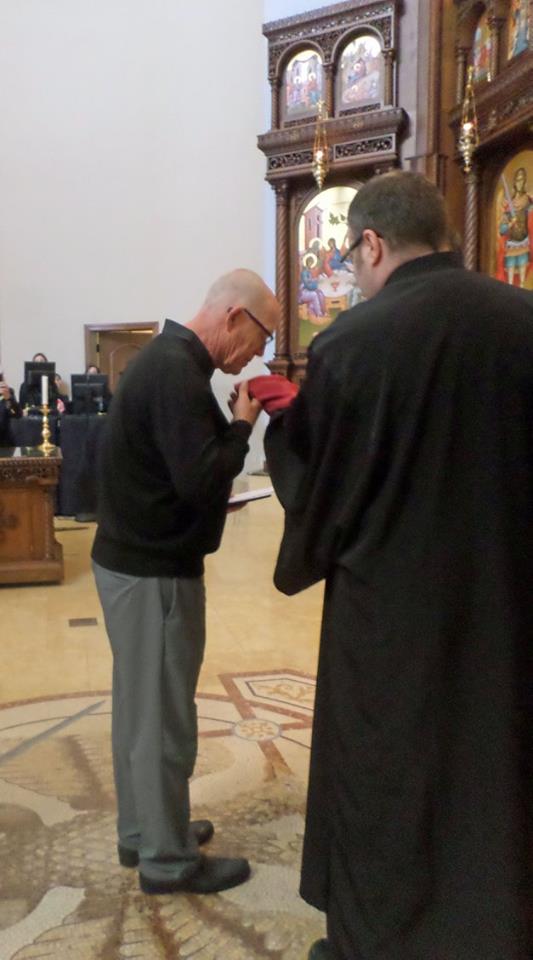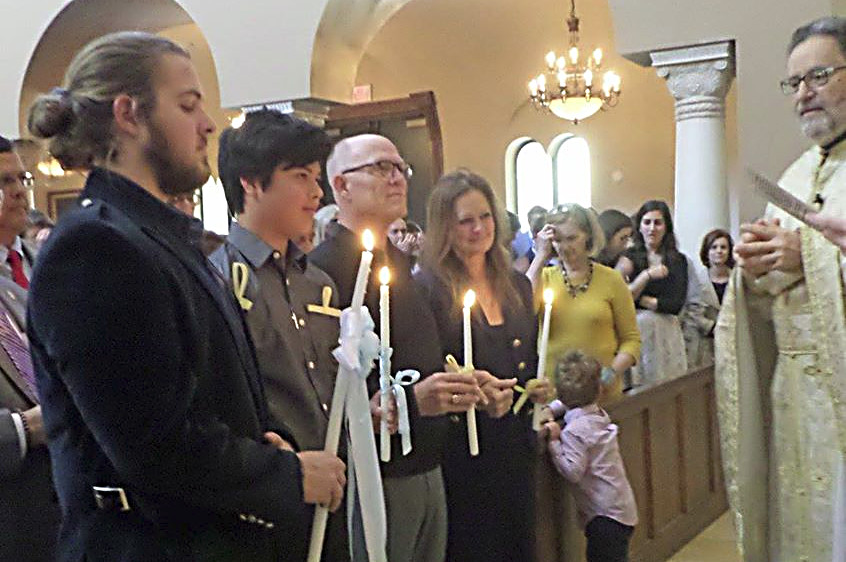 In the recent controversy surrounding Hank Hanegraaff, the ‘Bible Answer Man,’ and his conversion to Greek Orthodoxy, I received numerous, literally hundreds upon hundreds, of emails and messages, asking me to retract my claim that Hanegraaff has departed the Christian faith and telling me that I went too far by saying this. Pulpit & Pen has been accused of being “always cantankerous” to “using a bazooka” against Hanegraaff and “judging his heart.”
In the recent controversy surrounding Hank Hanegraaff, the ‘Bible Answer Man,’ and his conversion to Greek Orthodoxy, I received numerous, literally hundreds upon hundreds, of emails and messages, asking me to retract my claim that Hanegraaff has departed the Christian faith and telling me that I went too far by saying this. Pulpit & Pen has been accused of being “always cantankerous” to “using a bazooka” against Hanegraaff and “judging his heart.”
The issue here, however, is not of judging Hanegraaff’s heart. This is not something we, as Christians, can do. We can, however, judge them by their fruits (Matthew 7:16-20), and this is what we have done.
Therefore, having this ministry by the mercy of God, we do not lose heart. But we have renounced disgraceful, underhanded ways. We refuse to practice cunning or to tamper with God’s word, but by the open statement of the truth we would commend ourselves to everyone’s conscience in the sight of God. –2 Corinthians 4:1-2
Hank Hanegraaff has implicitly denied the essential doctrines of Christianity–namely the doctrine of salvation by grace alone through faith alone. While he claims that “nothing has changed” in his beliefs that have been “codified” in his numerous books, we must understand that denominational and church affiliation is an expression of one’s faith. In other words, he may give lip service to biblical doctrines, but in practice, he’s now denying them.
They went out from us, but they were not of us; for if they had been of us, they would have continued with us. But they went out, that it might become plain that they all are not of us. — John 2:19
The Greek Orthodox Church does not trust solely in the finished work of Jesus Christ on the cross for salvation. According to the Greek Orthodox Archdiocese of America, salvation includes faith in Jesus Christ but also requires meritorious works. It states “the reception of the gift of salvation is not a one-time event but a life-time process.” With a nearly identical understanding of salvation as the Roman Catholic Chuch, the Greek Orthodox Church teaches that our good works, even though empowered by the Holy Spirit to do so, are a means of grace, as opposed to the evangelical understanding that our works are a result of grace.
This fine line may seem insignificant, but in reality, it is the difference between the true gospel and “another gospel.” (Galatians 1:8) It is the difference between trusting in Christ and trusting in something other than Christ. It is the difference between true conversion and false conversion.
Further, Hanegraaff confirms his affirmation of this other gospel not only by his chrismation into the church that teaches it but in his own words he states that he believes in salvation by “grace alone through an active faith.” An “active faith” is a “faith” that consists of meritorious works as a means of grace.
In the Orthodox Church, repentance is mediated through a priest. The belief is that, according to the Mysterion of Repentance, while only God can forgive sins, it is necessary for a priest to appeal to God and “invoke” the remission of sins from him.
The Orthodox Church also rejects the sole infallible authority of God’s word and accepts on equal authority the following doctrines and commandments of men: The first seven ecumenical councils and later church councils, the writings of many “church fathers” throughout the first few centuries A.D., the Church’s canon law, and liturgy. Scripture teaches us to reject these man-made traditions as authority.
‘These people honor Me with their lips, but their hearts are far from Me. They worship Me in vain; they teach as doctrine the precepts of men.’ –Matthew 15:8-9
The Orthodox Church practices idolatry through iconography. The Orthodox Church claims that by venerating saints through icons, they are venerating God whose light “shines through their halos.”
When we praise, worship, and magnify Jesus Christ, we are offering praise, worship, and honor to the all-holy Trinity: Father, Son, and Holy Spirit. Similarly, when we pay honor to the image of the Son of God in icons, we are paying honor to the prototype—to Jesus Christ himself. And when we honor the Saints, we are honoring the God whose uncreated light shines through their halos. The uncreated light of the shimmering gold leaf as it reflects the light of our oil lamps and candles—symbolic of the faithfulness of God shining forth in their saintly and Christ-like lives (which is, incidentally, why Orthodox Christians pay such close attention to the lives of the Saints).
This is pure idolatry and this practice is completely foreign to Scripture. It is true that Jesus is “the radiance of the glory of God and the exact imprint of his nature.” (Hebrews 1:3) However, we do not find this image in saints, but in the Word of God.
In the beginning was the Word, and the Word was with God, and the Word was God. He was in the beginning with God…And the Word became flesh and dwelt among us, and we have seen his glory, glory as of the only Son from the Father, full of grace and truth. –John 1:1-2,14
Today, Christ does not dwell among us in bodily form but is seated at the right hand of the Father (Ephesians 1:20). How do we see Christ? In His eternal word. The Scriptures are His self-revelation and it is the Scriptures alone that we find Him, the Scriptures alone that He converts us, and the Scriptures alone that invoke us to worship Him (Romans 10:17).
Christ cannot and will not be found in the Greek Orthodox traditions, and while it is acknowledged that some can be saved in the Orthodox religion, it would be in spite of their tradition, not because of it. Anyone who professes a belief in the false traditions of men found in the Orthodox religion shall be treated as one who does not understand the gospel and does not know Jesus Christ as savior. His beliefs are expressed not only through his words, but his practice–namely his church. His church is a false church. They teach a false gospel and worship a false Jesus. We must evangelize them.
This is not a judgment of one’s heart, but a judgment of their fruit.
But even if we or an angel from heaven should preach to you a gospel contrary to the one we preached to you, let him be accursed. –Galatians 1:8
[Contributed by Pulpit & Pen]











